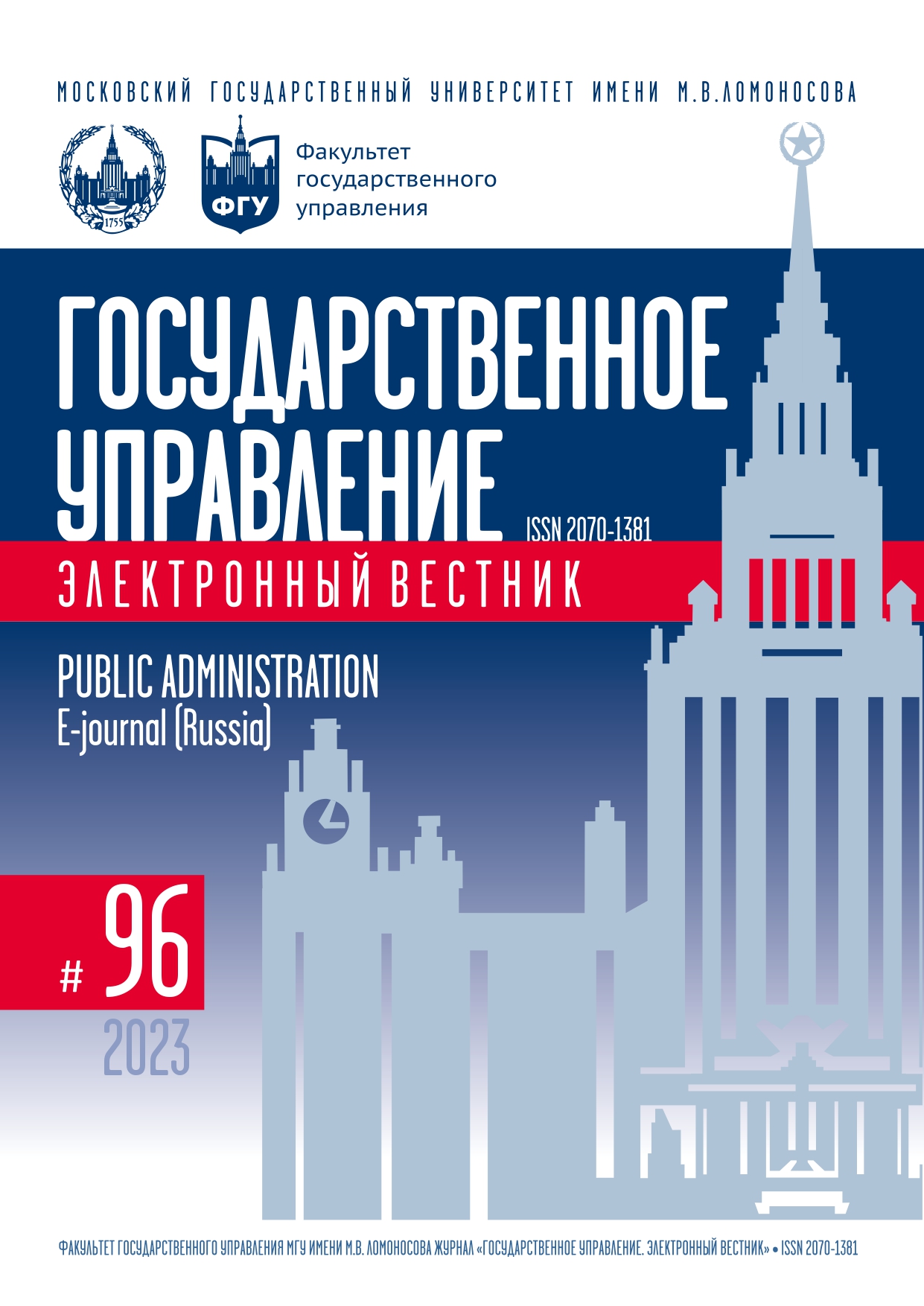From Propaganda to Public Diplomacy: The Emergence and Development of an Original Concept
Keywords:
Propaganda, public diplomacy, soft power, Vatican, USA, World War I, World War II, cold war, Harold Lasswell, Edmund Gullion, Joseph Nye, Nicholas CullAbstract
The article analyses the transformation of how information is disseminated and influence in foreign policy starting with the use of propaganda methods to the emergence of the concept of public diplomacy. The authors study the evolution of the propaganda in foreign policy from the Ancient world to the end of the 19 century, separately dwell on the specifics of propaganda in foreign policy in the first half of the 20 century and consider in detail the transition from applications of propaganda technologies in foreign policy to public diplomacy in the second half of the 20 century and the further evolution of this concept. The novelty of the research relates, firstly, to the fact that the transformation of propaganda technologies is considered in a general historical context. Secondly, the authors conduct a comparative analysis of propaganda and public diplomacy and establish their fundamental differences. Public diplomacy is a tool used by both governments and private actors to shape a positive image of the subject country through broadcasting, cultural exports, organization of exchanges and other things in the public environment of the recipient countries. Theoretically, the public diplomacy rests on unbiased information that is at the same time trustworthy, while propaganda is used primarily for short-term purposes and is aimed at manipulating public consciousness through distortion or one-sided coverage of facts. Despite the fact that modern scientific discourse offers a number of criteria for separating propaganda and public diplomacy, distinguishing the use of the latter from the application of propaganda methods in practice seems to be a difficult task. The authors conclude that the concept of public diplomacy is both a derivative of the phenomenon of propaganda and a scientific attempt to dissociate from it, however, in modern conditions, it is becoming increasingly difficult to draw a clear line between them.
References
Артамонова У.В. Направления и формы реализации публичной дипломатии // Анализ и прогноз. Журнал ИМЭМО РАН. 2021. № 2. С. 49–56. DOI: 10.20542/afij-2021-2-49-56
Бернейс Э. Пропаганда. Москва: Hippo Publishing, 2010.
Власов А.В. Современные технологии публичной дипломатии // Вопросы политологии. 2021. Т. 11. № 11. С. 3308–3314. DOI: 10.35775/PSI.2021.75.11.038
Власов А.В. Влияние использования публичной дипломатии на обеспечение информационной безопасности государства // Вопросы национальных и федеративных отношений. 2022. Т. 12. № 1. С. 236–240. DOI: 10.35775/PSI.2022.82.1.026
Долженкова Е. Эволюция методов пропаганды во время Второй мировой войны // Российское право онлайн. 2021. № 2. С. 76–79.
Лассуэлл Г. Техника пропаганды в мировой войне. Москва: ИНИОН РАН, 2021.
Липпман У. Общественное мнение. Москва: Институт Фонда Общественное мнение, 2004.
Наумов А.О. От Советского Союза к Российской Федерации. Эволюция отечественной системы «мягкой силы» и публичной дипломатии // Вестник Московского университета. Сер. 21. Управление (государство и общество). 2019. № 2. С. 102–117.
Цыганов В.Е. Публичная дипломатия: технологии, функции и особенности применения // Вопросы политологии. 2021. Т. 11. № 12. С. 3761–3767. DOI: 10.35775/PSI.2021.76.12.042
Armitage D. The Declaration of Independence: A Global History. Cambridge: Harvard University Press, 2007.
Childs H. An Introduction to Public Opinion. New York: Wiley, 1940.
Cull N. Public Diplomacy. Foundations for Global Engagement in the Digital Age. Cambridge: Polity Press, 2019.
Deringel S. The Well-Protected Domains: Ideology and the Legitimation of Power in the Ottoman Empire, 1876–1909. London: I.B. Tauris, 1998.
Doob L.W. Public Opinion and Propaganda. New York: Henry Holt and Company, 1948.
Fallon R.T. Milton in Government. University Park: Pennsylvania State University Press, 1933.
Fellows E. ‘Propaganda’: History of a Word // American Speech. 1959. Vol. 34. Is. 3. Р. 182–189. DOI: 10.2307/454039
Garth J., O’Donnel V. Propaganda and Persuasion. Thousand Oaks: SAGE, 2012.
Herman E.S., Chomsky N. Manufacturing Consent. The Political Economy of the Mass Media. New York: Pantheon Books, 2002.
Kater M. Inside Nazis. The Goebbels Diaries, 1924–1941 // Canadian Journal of History. 1990. Vol. 25. Is. 2. P. 233–243. DOI: 10.3138/cjh.25.2.233
Lasswell H.D. The Theory of Political Propaganda // The American Political Science Review. 1927. Vol. 21. Is. 3. P. 627–631.
DOI: 10.2307/1945515
Lindernan E., Miller C. Introduction to Harold Lavine and James Wechsler. War Propaganda and the United States. New Haven: Yale University Press, 1940.
McManamon J. The Text and Contexts of Ignatius Loyola’s “Autobiography”. New York: Fordham University Press, 2013.
Nye J. Soft Power // Foreign Policy. 1990. № 80. P. 153–171. DOI: 10.2307/1148580
Nye J. The Information Revolution and American Soft Power // Asia–Pacific Review. 2002. Vol. 9. Is. 1. Р. 60–76. DOI: 10.1080/13439000220141596
Nye J. Soft Power: The Means to Success in World Politics. New York: Public Affairs, 2004.
Nye J. Public Diplomacy and Soft Power // The ANNALS of the American Academy of Political and Social Science. 2008. Vol. 616. Is. 1. P. 94–109. DOI: 10.1177/0002716207311699
The Constitutions of the Society of Jesus and Their Complementary Norms: A Complete English Translation of the Official Latin Texts / ed. by V. Padberg. St. Louis: The Institute of Jesuit Sources, 1996.
Parmiter de G. The King’s Great Matter: A Study of Anglo-Papal Relations 1527–1534. London: Longmans, 1967.
Taylor P. Ethics and International Propaganda // The Handbook of Global Communication and Media Ethics. Volume II / ed. by R. Fortner, P. Fackler. New Jersey: Wiley-Blackwell, 2011. P. 912–932.
Waller M. The Public Diplomacy Reader. Washington: The Institute of World Politics Press, 2007.
Young K. Social Psychology. New York: Crofts, 1944.

